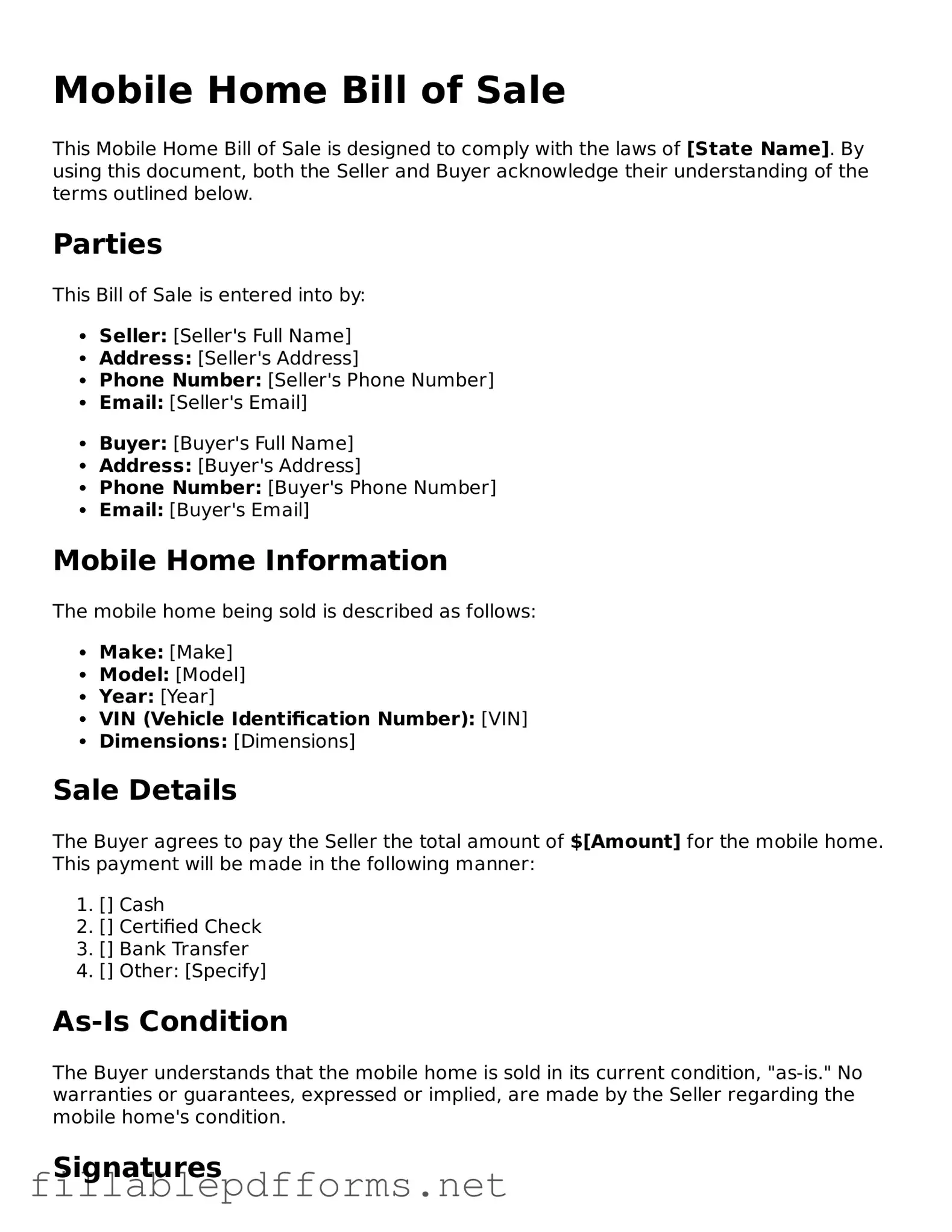Blank Mobile Home Bill of Sale Template
The Mobile Home Bill of Sale is a legal document that serves as proof of the sale and transfer of ownership of a mobile home from one party to another. This form outlines important details such as the buyer and seller's information, the mobile home's specifications, and the sale price. Understanding this document is crucial for both buyers and sellers to ensure a smooth transaction and to protect their rights.
Launch Editor Here

Blank Mobile Home Bill of Sale Template
Launch Editor Here

Launch Editor Here
or
▼ Mobile Home Bill of Sale PDF
Almost there — finish the form
Complete Mobile Home Bill of Sale online fast — no printing, no scanning.